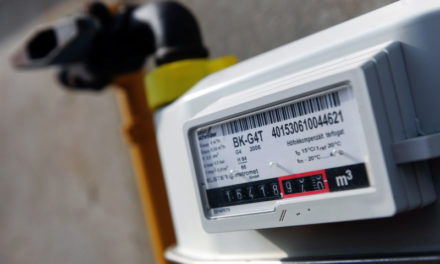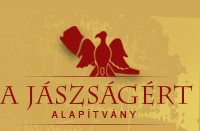Ursula von der Leyen
President of the European Commission
European Commission
Rue de la Loi/Westraat 200
1049 Brussels
Dear Madam President!
One of the trends of the 2000s is that non-governmental organizations and human rights organizations gained significant influence within the institutional system of the European Union.
This general direction is now clearly reflected in the benefits they receive from community integration. In the EU budget for the 2021-2027 cycle, nearly 1.9 billion euros have already been allocated to the "Legal Assertion, Rights and Values" program, within the framework of which these NGOs can further strengthen their own influence, and the extra financial support they have acquired even more they will be able to use it in lobbying against nation-state governments. The level of the EU appanage also increased due to pressure from NGOs and external international experts compared to what was originally planned; because the Commission, also known as the "government" of the EU, increased the previously allocated 947 million euros for the program to 1.9 billion because the LIBE committee, as a specialist committee of the European Parliament, initiated the doubling of the amount. In contrast to the previous cases, it is recommended that the awarding of the sums also reflect the proposals of the factions, taking into account the parliamentary party plurality.
The consultative and influencing activities of NGOs are carried out especially in the direction of the European Commission. They can take part in the Commission's consultations on legislative proposals. These can be "targeted", when only a specific group of people is invited to respond by the Commission, or open, public consultations, which - at least in theory - are open to everyone. How effectively individual non-governmental organizations can make recommendations and proposals, and express their will towards the Commission, depends more or less on their embeddedness, their internal "hindland".
The Commission also provides NGOs with the opportunity to speak in a more structured way, for example in formal working groups. In addition, the Directorate-General for Trade of the European Commission organizes the so-called civil society dialogue forums, where, in addition to non-governmental organizations, for example, representatives of trade unions or business life can consult with representatives of the Commission.
However, in addition to this, and even more directly, the Commission provides NGOs with influence in decision-making work. The latter can carry out ad-hoc interactions with Commission officials, directly contact directorates-general, and the directorates-general themselves organize regular meetings with NGOs ("ad hoc meetings"), outside the formal structure of expert groups.
Within the European Parliament, NGOs can even negotiate ad-hoc with the MEPs, and in addition to the MEPs - during the legislative process - they can directly contact, for example, the shadow rapporteurs (who are entrusted by the factions in connection with the drafts), the committee presidents , with assistants and other officials of the committee secretariat. In terms of the possibility of forming opinions, NGOs are practically an integral part of the European Parliament's operating mechanism, without them it is much more difficult for legislative proposals and draft laws to pass.
In addition, NGOs can provide coordinators or secretariats for special EP (inter-factional) groups, and influence parliamentary decision-making by defining the political agenda, topics to be discussed, and appointing rapporteurs. Through the special groups, they can force the MEPs to sign statements and documents with more subtle power pressure. Behind the EP resolutions there is also serious NGO influence work.
The main elements of the necessary reform in the spirit of transparency
The principle of double financial transparency would perhaps be suitable for controlling the work of NGOs within the EU institutional system. In the United States, Germany and, for example, in Israel since 1994, the method is used that NGOs - like parties and lobbying companies - are obliged to report on the origin of their sources and the identity of their donors and supporters. The Australian government has also introduced a public online register containing the names of lobbyists at the federal level. On the one hand, this would show external (from outside the EU institutions, often international, global network) funding, which should be complemented by the transparency of funds received within the framework of EU institutional programs - in the spirit of double transparency. In the case of external, often global, donors, the general reporting obligation would be the main goal, while in the case of subsidies provided by EU programs (in particular, for sources that can be derived from the taxpayers' money of EU citizens) the main goal would be to enforce transparency and itemized accountability.
A solution could be to eliminate the direct relationship of international NGOs with the directorates-general of the Commission, or to keep it, the national parliament of each country can delegate a civil organization that, in addition to international NGOs, will also have the opportunity to have a regular dialogue with the directorates-general. The same would apply to the working groups within the Commission, to which the member state legislatures could also delegate organizations. NGOs, civil and interest protection organizations should prepare a jointly annotated content report on the activities carried out in the Committee's working groups every six months. The latter reports should be made public on a separate website or on the same interface, on which double financial transparency is ensured in relation to the sources and grants of NGOs.
Along the same principle logic, the possibility of sovereignist lobbying in the European Parliament must be ensured to the representatives of the EP under the same conditions as in the case of the economic representatives and lobbyists of conglomerates representing international/global interests, partially inspired by the American (federal level) based on the traditional political principle of the common good. in order to ensure fairer "public interest/governmental representation".
NGOs, organizations and associations often - and increasingly - act as political actors, they want to thematize the public discourse and influence the work of legislatures and governments. At the same time, it is a general problem that, based on the current regulations, financial accountability similar to that of parties cannot be enforced, nor can the same degree of internal democracy be enforced. If community institutions impose similar transparency and accountability requirements on NGOs, mainly on the basis that they have the power to participate in community decision-making, this would naturally apply to all groups that also have influence in shaping community political will and decisions.
Budapest, June 14, 2022.
Sincerely:
László Csizmadia
chairman of the board of trustees
CÖF-CÖKA (Civil Solidarity Public Benefit Foundation)











